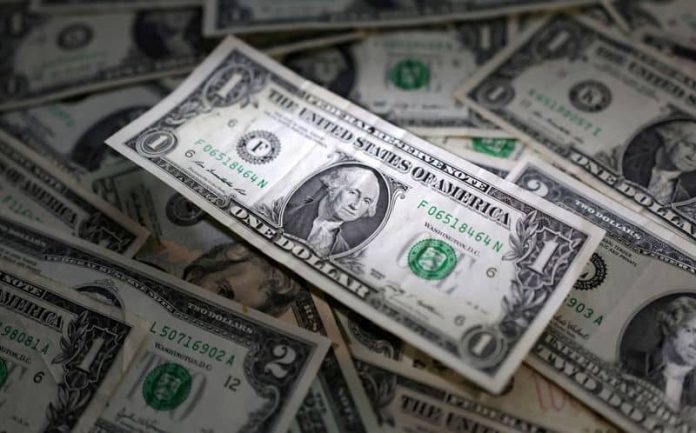SINGAPORE (Reuters) – The dollar touched a six-month high against the yen on Tuesday as expectations grew that U.S. rates will remain higher for longer and as the debt ceiling impasse kept risk sentiment fragile.
Among a slew of Federal Reserve heavyweights who spoke on Monday, some hinted that the central bank still has more to go in tightening monetary policy.
Minneapolis Fed President Neel Kashkari said that U.S. rates may have to go “north of 6%” for inflation to return to the Fed’s 2% target, while St. Louis Fed President James Bullard said the central bank may still need to raise another half-point this year.
Against the Japanese yen, the greenback rose to a near six-month peak of 138.88 in Asia trade, reflecting the stark contrast between a still-hawkish Fed and an ultra-dovish Bank of Japan. The dollar was last 0.11% lower at 138.44 yen.
“Markets are pricing for higher rates for longer by the Fed,” said Tina Teng, market analyst at CMC Markets. “U.S. inflation is still way above the target … and near-term, the economy is running resilient.
“I don’t think the Fed will just start cutting rates anytime soon.”
Money markets are pricing in a roughly 20% chance that the Fed will deliver another 25-basis-point hike next month and have scaled back expectations of Fed rate cuts later this year, with rates seen holding above 4.7% by December.
Similarly, the greenback kept the offshore yuan pinned near its recent five-month low and it last bought 7.0586.
China on Monday kept its benchmark lending rates unchanged, as a weakening yuan and widening yield differentials with the United States limited the scope for any substantial monetary easing to shore up the country’s post-COVID economic recovery.
The euro slipped 0.05% to $1.0808 and is down nearly 2% for the month thus far against a stronger dollar, reversing two straight months of gains.
Sterling was largely unchanged at $1.2436.
Flash PMI figures in the euro zone, the UK and the United States are due later on Tuesday, following Japan’s PMI release earlier in the day.
Japan’s manufacturing activity expanded for the first time in seven months in May, while the service sector hit record growth, as the post-COVID recovery shored up business conditions.
‘X-DATE’ LOOMS
Also on investors’ minds were concerns over a looming debt ceiling deadline in the United States, which put a lid on risk sentiment and supported the safe-haven U.S. dollar.
President Joe Biden and House Speaker Kevin McCarthy ended discussions on Monday with no agreement on how to raise the U.S. government’s $31.4 trillion debt ceiling and will keep talking with just 10 days before a possible default.
“The debt ceiling drama has reached a fever pitch in recent weeks,” said economists at Wells Fargo (NYSE:WFC). “The policy disagreements among lawmakers appear wide as we enter crunch time.”
Short-end U.S. Treasury yields have jumped, reflecting market jitters, with the yield on the one-month Treasury bill last up more than 10 bps at 5.7580%. Yields rise when bond prices fall.
The yield on the two-month Treasury bill rose to a roughly three-week high of 5.4690%.
Against a basket of currencies, the U.S. dollar steadied at 103.25, not far from a roughly two-month high hit last week.
The Aussie slipped 0.02% to $0.6651, while the kiwi gained 0.02% to $0.62865.



















